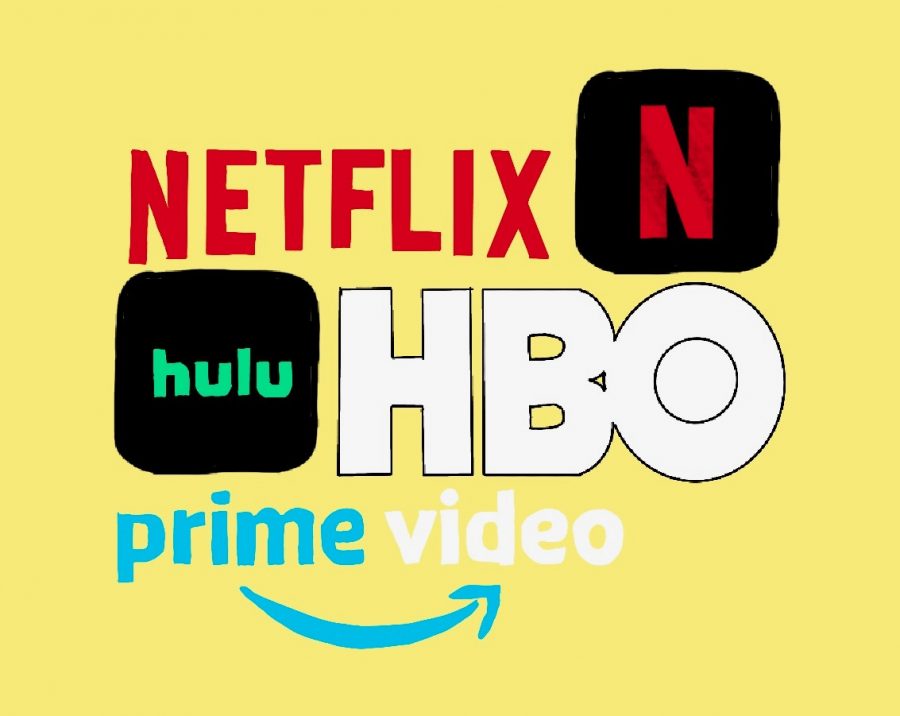The Separation of Streaming Services Leads to Quality Over Quantity
June 16, 2020
It wasn’t until just the other night that I realized how monolithic streaming has become in all facets of entertainment. As I sat in my chair reflecting on the long gone days of movie theaters, I had the urge to watch the first movie that caught my eye. Starting with Netflix, I spent a good ten minutes scrolling through their selection of films, half of which were cheap ‘originals’, the other half seemingly picked from the Walmart bargain bin. Moving onto Hulu, renowned for their market cornering of great TV, just not for movies, I was unsurprisingly disappointed with their selection in much the same way. Finally, after scouring the new face in town; HBO Max, I resigned to another evening of watching two guys building pools in the ground. There’s two possible conclusions to be drawn from this daily ritual: that I might be the pickiest customer on these sites, or that despite the numerous services and their individual libraries of content, their business is in quantity over quality, and harbor the bare minimum of tried and tested classics for the purpose of drawing in subscriptions. Seeing as I can be entertained by a pair of mute men with spades beating up the ground, I believe in the latter.
As of June 2020, it seems like streaming services have become the entertainment industry’s new gold rush, breathing life back into an economy that seemed so close to collapse, even prior to coronacation. On paper, the business model of these services is a dream for production companies. The customer who may have only paid to see five or six films in a year now works under a subscription, rolling in a flat fee every month of the year, consequently removing nearly every risk of the market that promotes good movies being made. When a movie is well written, produced, and completed, there isn’t a guarantee it’ll make its money back in theaters, but it has a significant lead competing against shlock; movies made to “check boxes.” By removing the consumers’ choice in where their money lands, the entertainment industry effectively removes its motivation to make the product good in any sense of the word. Who cares if you’re hiring a first time director, or halving the budget when you’ve already taken your customer’s money hand over fist? While obviously no company seeks out to create a critically panned program or film, the business side of the industry seems to take both hands on the wheel as the creative and artistic become obsolete. When you’ve got a quota to create two dozen new series about teenagers played by 30 year olds, it’s unsurprising that most of them will feel closer to a product than a piece of art.
While it’s rare enough to find fresh or exciting programming on market leader Netflix, the worst of this new business model is the multitude of different companies hawking their own individual service. Want to watch 2019 best picture winner Parasite? Only available on the TV centric service Hulu, $12 a month, thank you very much. Wanna catch the now rebooted Twilight Zone? Only available on CBS All Access, $10 please. This fractured market wasn’t always the case, as a mere two years ago half of these services didn’t exist, with most shows and movies usually landing at the feet of the only competition in town at Netflix. That prime selection has gone now, as a swarm of names come for their slice of what used to only be Netflix and Hulu’s pie. Now forced to compete with billion dollar titans such as Amazon or Apple, as well as pillars of entertainment such as Warner Brother’s HBO services, it’s little wonder why Netflix is forced to stock its shelves with its own filler content: nobody’s willing to sell.
As Netflix began the industry of at home demand with physical discs sent through the mail (Remember mail? It’s how stuff smaller than an Amazon package got to your house), their more revolutionary business strategy of instant streaming has seemed to have already become the new norm. While studios push to drop their latest blockbusters, such as The Invisible Man, on services like Amazon Prime for a ‘one-size-fits-all’ pricing-strategy, it seems that the grave for movie theaters is already dug. Now, amongst a global epidemic, it’s concerning if people will ever return to the cinema, so quick to forget the century of great experiences.










